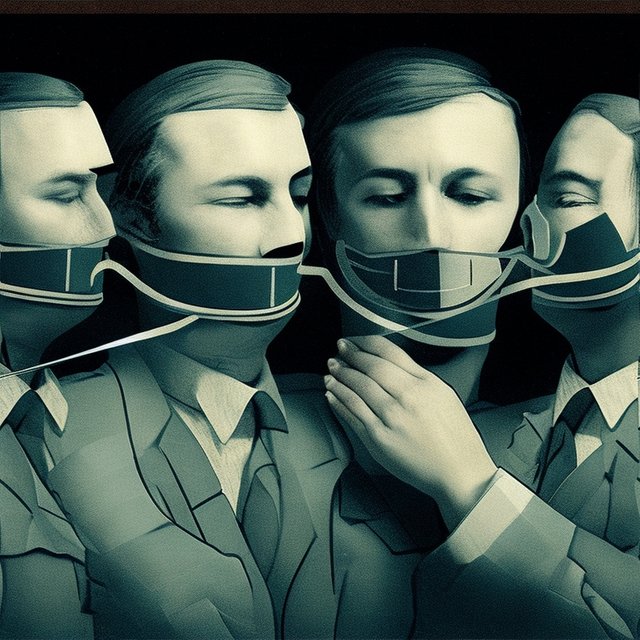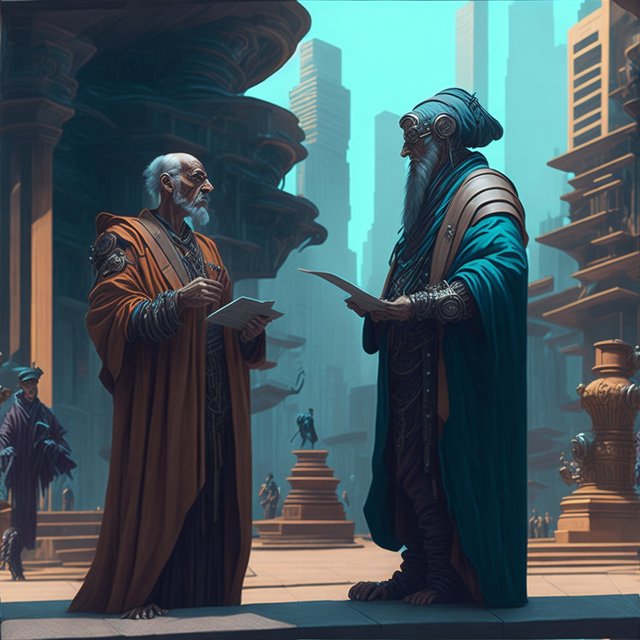.jpeg)
Introduction
In Ayn Rand's dystopian novel Atlas Shrugged, the mysterious character John Galt delivers a climactic speech that lays out his philosophy and vision for a new moral code to rebuild society. At the heart of this speech is Galt's prediction that the existing societal order, which he sees as irrationally constrained by altruism and collectivism, is destined for collapse. Only then can an enlightened new society emerge from the rubble, founded on the pillars of reason, ethical egoism, individualism, and freedom. Galt calls for the rational, self-interested individuals to spearhead this reconstruction based on his radical objectivist principles. In his view, this is the only way humanity can reach its full potential, unencumbered by the false morality of altruism. This paper will analyze Galt's forecast of necessary destruction followed by optimistic rebirth, examining how he frames the current order as doomed and his proposed ethos as the essential seed for a utopian new world where people can truly flourish. It will unpack Galt's vision of social breakdown as a condition for progress.
.jpeg)
Galt Predicts the Collapse of the Old Order
A core element of Galt's argument is his scathing critique of the "looters" and "moochers" who he sees as plaguing society. He uses these inflammatory terms to refer to people who obtain goods, services, and benefits from the capable and talented without payment or contribution. In Galt's view, these looters and moochers exploit the productive output and innovations of the intelligent creators, business leaders, and inventors who move society forward. However, instead of recognizing the contributions of these individuals, the current social order allows the unproductive looters and moochers to freeload off their efforts. This systematic exploitation drains the motivation, passion, and output from those capable of advancing society. Galt argues this unjust dynamic corrodes society by punishing ability and rewarding parasitism. For him, the old order has descended into a dysfunctional state where the irrationally selfless and talentless weighs down the rationally selfish and capable. This ominous exploitation and decay sets the stage for collapse.

Frustrated by the exploitation of the looters and moochers, Galt describes how the most rational and talented people have gone on strike, withdrawing their minds and abilities from society. These creative minds across industries - from business leaders to scientists to artists - have disappeared, gone into hiding to let the old order crumble. Galt sees this "mind on strike" as a deliberate acceleration of society's decay. By removing the productive output and innovations that once drove progress, the strike leads to economic and societal chaos, shortages, famine, breakdown of infrastructure. For Galt, this breakdown is a necessary consequence and punishment for the moral corruption and irrational constraints of the old collectivist society. He believes the resulting turmoil will underscore the need for the rational mind and individual talent. The strike reveals society's dependence on the independent thinkers, showing how quickly the denial of talent breeds decline. This meltdown sets the stage for the emergence of a new moral code valuing the gifted individual.

At the foundation of Galt's prediction of collapse is his contention that the altruistic morality that props up the old order is inherently flawed and unstable. He argues the edicts of self-sacrifice and living for others are irrational principles contrary to human nature. This irrationality dooms the social order built upon it. No society can survive long by choking off the ambition, passion, and independence of its citizens in service of some vague "common good." For Galt, altruism immorally asks the capable to subordinate themselves to the unable and unwilling. This inversion of morality stifles human potential and breeds resentment and decay. Galt sees recognition of this irrationality as a foregone conclusion, making the collapse of the old ways inevitable. The altruistic servitude exalted as virtuous by the current order will inevitably give way to more rational ethical frameworks - namely, Galt's vision of rational egoism, unlocking human potential.
##Galt's Vision for a New Moral Code
Central to Galt's proposed moral code is the principle of ethical egoism - the idea that an individual ought to pursue their own rational self-interest. This stands in direct contrast to the altruistic ethos of self-sacrifice for others that Galt derides. Ethical egoism holds that one's own life and happiness are of paramount importance. It calls for people to act with rational self-interest, using their individual talents and judgment to achieve their potential. Galt advocates moral autonomy based on rational thought, rather than subservience to the collective. He sees this ethical framework as unlocking human ingenuity, creativity, and achievement by removing irrational altruistic constraints. With individuals freed to act in their self-interest, Galt envisions a meritocracy where people succeed by ability and create value, rather than exploiting others. Ethical egoism provides the moral foundation to enable the creators and thinkers to rebuild society after its collapse.

In addition to ethical egoism, Galt champions radical individualism to supplant the collectivism inherent in the old order's altruistic code. He argues individuals should be liberated from the demands and constraints of the group. This entails rejecting the collectivist mandate that people's lives belong to society or have meaning only in service to others. Instead, Galt calls for an individualist approach where each person can live for their own fulfillment and flourishing. Freed from the shackles of forced self-sacrifice, individuals would pursue their own rational self-interest and talents. Unleashing autonomous individual aspirations and abilities would fuel creation, achievement, and growth in the new society. No longer interchangeable cogs in the collectivist machine, individuals could realize their potential. By elevating the unleashed individual over the constrained group, Galt's moral code provides the ingredients for society's rebirth.
Galt further contends that individual freedom and inalienable rights must be pillars of the new moral code. He argues that in the old order, freedoms and rights were routinely violated and suppressed in the name of the nebulous collective good. Freedoms of speech, thought, assembly, and contract were constrained whenever they came into conflict with societal duties or egalitarian aims. However, Galt asserts that humans require freedom to actualize their potential through purposeful, rational action. Therefore, true individual rights must be inviolable. The new moral order would ensure the sanctity of liberties like speech, press, association, and contract. People would be unencumbered to think rationally, act morally, and pursue their own self-fulfillment. Enshrining inviolable individual rights would unleash creativity and prevent the irrational oppression perpetrated by the old order. This framework of individual rights provides the foundation required to rebuild society.

Finally, Galt posits that voluntary trade of value for value must replace the old order's coercion and exploitation. He contends that economic relations in the new society should be based on the rational self-interest of individuals freely trading the fruits of their labor. Instead of sacrificing for others involuntarily, people would exchange goods, services, and benefits willingly to mutual advantage. There would be no compulsion or forcible redistribution of wealth. Economic interaction would be freely chosen whenever both parties believe they will gain value. By ensuring interactions are non-coercive exchanges of value, this economic framework removes the exploitation that Galt sees plaguing the old society. Trade based on rational self-interest becomes the new moral standard, where unearned plunder is immoral. This voluntary exchange ethic thereby enables prosperity and flourishing built on cooperation, not coercion.
Rebuilding Society on Reason, Individualism and Freedom
Given his scathing critique of the existing society's irrationality and inevitable decline, Galt sees the collapse of the old collectivist order as a necessary prerequisite for building a new moral system. He argues that the current unjust, exploitative society must be razed before a more rational one can be erected in its place. Like decaying underbrush cleared away to allow new growth, the destruction of the warped status quo makes way for the sprouting of a more enlightened civilization grounded in reason and individualism. For Galt, progress cannot be made by incrementally reforming a system whose very foundations are flawed. The old order's irrational constraints must be completely lifted for human potential to be unleashed. Thus, the collapse, while chaotic and painful in the short term, presents the opportunity to rebuild society from the ground up based on the Objectivist principles Galt champions. The slate must be wiped clean for the new utopian vision to take root.

A core tenet of Galt's vision is that eliminating the irrational constraints of the old order will unleash incredible untapped human potential. He argues that the misguided obligations and duties imposed by the current morality shackle mankind's boundless capabilities. By replacing altruism and collectivism with rational egoism and individualism, the new moral code will remove the barriers stifling achievement. Unbound by irrational expectations of self-sacrifice, people will be motivated by self-interest and free to cultivate their talents to the fullest. Life will become an end in itself, not a means serving others. With individuals empowered to think and act rationally in their own interest, human ingenuity and creation can blossom to towering heights. Freed from the crushing burden of needless constraints, people will surpass all previous achievements in arts, science, industry, and technology. For Galt, this liberation of locked potential represents humanity's next epochal leap forward.

Ultimately, Galt's vision for a new moral code aims to empower everyday people to reach their highest potential and fulfillment. By rejecting the old irrational constraints of altruism and collectivism, individuals would be motivated by rational self-interest to think clearly, act morally in their own interest, and pursue their own happiness. Rather than being forced to sacrifice for others, people could focus on their own self-actualization and living purposefully by their own mind and judgment. Each person would be free to develop their unique talents and abilities instead of being chained to service of the group. Workers would be rewarded based on the value they create, not exploited for handouts to others. With individual liberties enshrined, rational thought and action could flower. This would allow common people, not just elites, to achieve prosperity and happiness through their own talent and effort. For Galt, this empowerment of the individual represents humanity's salvation.
Conclusion
In conclusion, John Galt's speech articulates a provocative vision of radical social transformation through creative destruction. He presents the reasoned argument that the existing society's decline into exploitative irrationality is inevitable and already underway. For Galt, this collapse is a necessary precursor that will clear the ground for a new moral order founded on Objectivist principles of reason, ethical egoism, inviolable rights, and free trade. He optimistically calls for rational, independent thinkers to spearhead this societal renewal that unleashes human potential. While his prediction of total collapse seems extreme, Galt compellingly conveys how the old order's illogical constraints breed injustice and decay. His cogent critique and alternative vision urge readers to ponder what irrationalities in modern society we might need to tear down to build a more enlightened future where all can thrive in autonomy.

It is important to recognize that Galt's vision for a new moral code and enlightened society is firmly rooted in the principles of Ayn Rand's Objectivist philosophy. At its core, Objectivism celebrates the power of the unfettered human mind to think rationally and create value. It exalts the individual's ability to build a meaningful life through purposeful, self-interested action. Galt's outlook aligns closely with these tenets. His projection of a new utopian society freed from irrational constraints of altruism and collectivism reflects Objectivist ideals of radical individualism, reason, liberty, and empowering the individual over the group. When Galt calls for the independent, rational person to boldly reshape society based on egoistic ethics, he is advocating Rand's Objectivist philosophy in action, demonstrating her ideals can salvage humanity from decline. Galt's entire speech is thus not just a projection of a new moral order, but an affirmation of the power of Objectivist thought to uplift mankind through the force of the unfettered human intellect and will.
Ultimately, Galt's prediction of the old order's collapse and his vision for a new moral code aim at enabling human flourishing in the truest sense. By removing the shackles of irrational altruism and collectivism, Galt believes individual human potential can be fully realized, allowing people to live rich, purposeful lives. His envisioned society founded on reason, egoism, rights and free trade would facilitate universal human flourishing. With collectivist expectations swept aside, all would be motivated to cultivate their talents and contribute value voluntarily through work. Anyone could succeed based on merit rather than privilege or sacrifice. With ample resources and opportunities provided by unleashed creators, people could pursue their dreams and reach self-actualization. Neither exploiting others, nor being sacrificed for the whole, each person could thrive in freedom and autonomy. This fulfillment of human potential across society represents the apex of progress for Galt. His predicted collapse and subsequent rebirth seek to make this ideal real.
